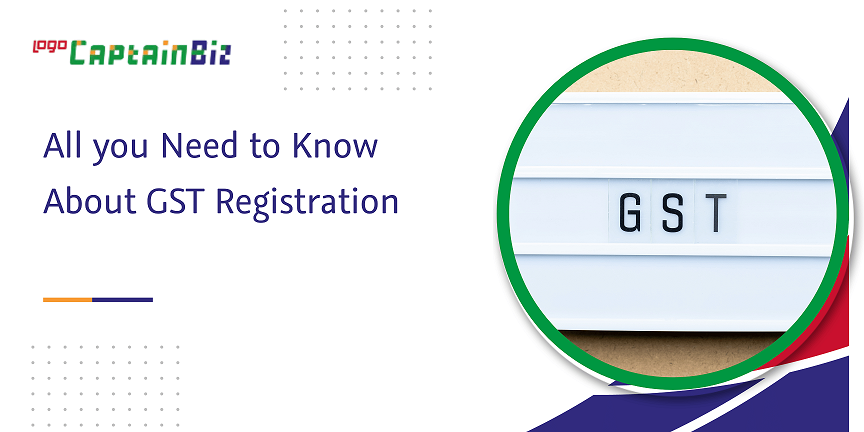Total Checklist for Efficient Singapore GST Registration
Total Checklist for Efficient Singapore GST Registration
Blog Article
The Ultimate Overview to Streamlining the GST Enrollment Process and Requirements for Local Business Owners

Understanding GST Basics
To realize the fundamentals of the Goods and Solutions Tax Obligation (GST) system, local business proprietors must first recognize its underlying principles and implications. GST is a value-added tax levied on most products and services for domestic intake. It intends to enhance the taxation process by replacing several indirect taxes enforced by the state and main federal governments. Under the GST program, companies are required to sign up and collect tax in support of the government, ensuring openness and compliance.
Among the essential principles of GST is input tax obligation credit, which permits companies to declare debt for taxes paid on their purchases. This device stops the cascading result of taxes and promotes efficiency in the tax system. Additionally, GST is a destination-based tax, meaning that the tax is imposed at the point of intake instead than the factor of origin. This makes sure reasonable distribution of tax obligation revenue amongst states based on where the products or services are eaten. Comprehending these basic concepts is critical for local business proprietors to browse the intricacies of the GST system and ensure compliance with the law.
Eligibility Requirements for Registration
Having developed a foundational understanding of GST concepts, tiny service proprietors should currently meet details eligibility requirements to proceed with the registration procedure (Singapore GST Registration). Companies that were registered under the previous tax regime (VAT, service tax, and so on) are also mandated to sign up under GST. Agricultural businesses that just supply create out of key production are exempt from GST enrollment.
Records Required for GST Enrollment

Simplified Registration Process Actions
Complying with the collection and confirmation of the requisite records, the registration process for GST can be navigated through a series of streamlined actions designed to help with efficient conformity for small company proprietors. Upon effective confirmation, an Application Referral Number (ARN) is released, showing the conclusion of the GST registration procedure. By following these simplified steps, little service owners can efficiently sign up for GST and ensure conformity with tax regulations.
Tips for Ensuring Compliance
To maintain regulative adherence and operational stability, persistent oversight and aggressive actions are pivotal in making certain conformity with GST demands for local business proprietors. Local business owners must stay upgraded with GST guidelines, filing deadlines, and any kind of adjustments in tax rates to avoid fines and preserve a good standing with tax authorities. One crucial idea for compliance is to keep detailed and precise records of all deals, including expenditures, invoices, and invoices associated to GST. Consistently fixing up economic records with GST returns can aid in identifying and rectifying any inconsistencies promptly. Furthermore, carrying out routine inner audits or seeking expert assistance can ensure that the organization is following all GST policies appropriately. It is also critical for small company owners to purchase GST-compliant bookkeeping software application that can simplify the tax declaring procedure and minimize mistakes. Going to GST recognition workshops or training programs can enhance understanding and compliance with GST regulations, ultimately benefiting the business in the her latest blog long run.
Conclusion
Finally, local business proprietors need to understand the essentials of GST, fulfill the eligibility criteria, collect necessary his comment is here papers, and adhere to the simplified registration procedure actions to make sure compliance. By simplifying the GST enrollment process and requirements, local business owners can prevent charges and operate their companies efficiently within the lawful framework - Singapore GST Registration. It is crucial for small company owners to remain informed and certified with GST policies to keep a successful company operation
Little business proprietors seeking GST enrollment have to guarantee they gather and send the required records to complete the enrollment process efficiently. The records required for GST enrollment usually include proof of company registration or unification, PAN (Irreversible Account Number) card of the business address, identification and entity evidence of the promoters/partners/directors, photographs, address evidence of the area of company, financial institution account statements or canceled cheques, and permission kinds. Attending GST awareness workshops or training programs can improve understanding and conformity with GST regulations, eventually benefiting the organization in the lengthy run.
By streamlining the GST registration process and demands, tiny business owners can stay clear of fines and operate their organizations efficiently within the legal framework. It is crucial for small company proprietors a fantastic read to remain compliant and educated with GST policies to preserve a successful service operation.
Report this page